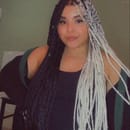Online learning has brought with it a plethora of problems, including the much debated expectation of academic honesty at whatever means necessary. But should academic honesty override the privacy and mental health of students? Some academic institutions are certainly toeing the line in the new COVID era of learning.
Prefacing a critique of surveillance mechanisms from schools and universities, it’s important to recognize the importance of academic honesty as a concept. The certainty of students doing their work individually is pivotal to educators because it’s how knowledge is gauged. The main idea is that these students will one day be professionals in their field, and if they copied, plagiarized, or paid for their work to be done by another person, they won’t be good at their job.
In a regular classroom setting, physically seeing and circling students like prey essentially eliminates the risk of copying during examination periods. Granted, online classes have existed far before the COVID-19 pandemic, and these have rarely required the strenuous anti-copying mechanisms being implemented in the COVID learning era. And yet, students have found various alternatives to get away with cheating on exams.
Some proctoring services, whose job is to monitor students through video and audio during exams, have been reported to monitor eye movements, all noises, and may require full views of the room the student is working in. This violates any sense of privacy within a student’s home, making it difficult for students to feel comfortable and do their best work.
How far is too far?
While expecting cheating from students may seem like a no brainer, some of the methods used to deter it have been at best excessive and at worst, blatant abuses of power. The University of Puerto Rico at Mayagüez was recently under fire for allowing professors to use the platform Respondus Lockdown Browser to administer exams; a platform known to cause issues with computers. The UPRM administration has done little to educate the campus community on its proper use, and it was recently made available again for use by professors by the UPRM’s Academic Senate after a temporary suspension, effective immediately, despite opposition from the student caucus. Being forced to risk personal electronic devices in the name of academic honesty is a violation of trust between students and their institutions, and will never ensure pure honesty with examinations.
In fact, nothing will ever ensure pure honesty with examinations. In 2019, 10 out of the top 100 education apps were cheating apps; nine of which were to “help” with math.
Truly, academic dishonesty has been around as long as academia has. While it should not be promoted, students’ rights and privacy should not be violated in an impossible quest to exterminate all cheating from university and school mediums. For better or for worse, the era of COVID-19 learning should be based on trust and communication, even when academy integrity is on the line.



